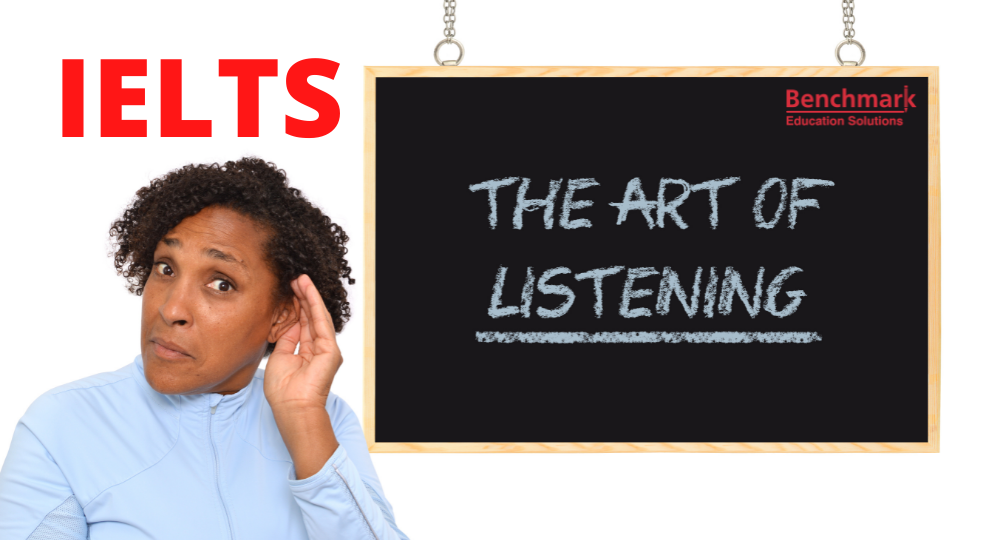Top IELTS Tips And Strategies To Improve IELTS Listening Test Score
- 0 Comments


The IELTS listening exam can be a big challenge for many reasons. Thankfully, there are various ways that you can go about improving your score. In today’s article, I am going to tell you some things you can do to improve your listening skills and boost your IELTS listening score.
Read on and then incorporate these 5 tips into your daily listening practice. These are things that everyone can do, so make them part of your routine.
1. Listening in English Every Day
Our first tip is an obvious one. If you want to improve your IELTS listening score, you will need to listen more often as a form of practice. It makes sense because it is simple. If you want to get better at anything, you have to practise regularly.
Some ways that you can do this are:
- Watching TV shows and movies in English (ie not dubbed into your language)
- Listening to podcasts about interesting topics
- Listening to radio shows
- Watching news articles on the BBC News app
- Watching YouTube videos for a wide range of topics
All of these might seem trivial, but just immersing yourself in English is important and it is something you must do regularly or else you will seriously struggle to get a good IELTS listening score. Many candidates treat English as a school subject to be studied, but languages are different from that. You need to live them, not just learn them. The more English you hear, the less “foreign” it will sound to you.
2. Take Instruction in English
You might wonder what I mean by “take instruction.” This basically means to follow instructions or guidance. There are many ways that this can be done, but perhaps the easiest and most interesting way in the twenty-first century is to use the internet when you need help for something.
For example, let’s say that you want to know how to bake a cake. Of course, you could probably find a reasonable set of instructions in your own language (depending on where you come from), but why not search on YouTube for an instructional video? By following this recipe, you are challenging yourself to listen actively.
It does not need to be baking a cake – it could be almost anything! If you get a flat tyre on your bike, want to grow a tomato plant, or need to know how to paint a wooden table, you should look up the video in English, then follow the instructions. Try it the next time that you need to follow instructions.
Why is this so helpful? Well, as I mentioned it is a form of active listening. However, more specifically it relates to the IELTS listening test because this frequently involves following instructions. Usually, one person is telling another some information and you have to listen and extract key details. By practising this in daily life, you can become more adept at following this sort of audio text.
3. Predict What Comes Next
When people listen in their own language, they naturally think about what will be said next. This is not a conscious thing. It’s just something that almost everyone does as a natural habit. It is also something that can help you in IELTS listening.
The reason is that the exam will have various predictable features. The answer, for example, will come in a set order according to the questions. People will talk logically. Grammar will even provide hints at what comes next.
Think about the first section. If you have to write down a phone number, obviously you will need to listen for the word “phone.” However, you don’t have to wait until someone actually starts reading out the digits of a phone number. Instead, you can wait until the idea of a phone number arises, then you will be ready for the number when it is read out. Someone might say something like, “And how can I call you?” or “Is there a mobile number I can use?” These are clues that a phone number will soon be read out.
You can practise this in daily life by listening carefully to English and then predicting what people will say. It can be done with anything from sports broadcasts to news shows to comedy skits. If you listen and don’t just fixate on the minute details of the language, but rather grasp the ideas being presented, then you will be able to intuit what will come next.
4. Get Used to Accents
English is famously an international language and so that means there is not just one accent. Some languages are specific to small areas and so there are only one or two accents or dialects, but English is vast. In the IELTS listening exam, you will hear people with English, Scottish, American, Canadian, and Australian accents, among others. This means you need to be prepared for any of them.
Whilst you will not be expected to decipher a thick Scottish accent, you will certainly hear accents that may be unfamiliar if you have learned from just one teacher or focused most of your listening practice on, for example, Hollywood movies.
To practise this, you should listen to a range of accent types. Try finding TV shows and YouTube videos and podcasts from different places. The subtle differences are often barely noticeable to native speakers, but for English learners, it could be confusing to hear different types of speech.
For example, some people find it odd how Australians say words like “today.” It sounds like “to die” according to some learners. You need to be familiar with this or else you could really struggle in the exam.
5. Practice Dictation
Dictation means writing down what you hear as you hear it. It is not a common skill nowadays but in the past secretaries used to have to do this and even students in school had to learn it. For IELTS listening, you occasionally have to write down words as you hear them. Although there is no “dictation section,” you certainly have to fill in blanks with words from the passage or write down numbers that you hear being spoken.
This means that you need to practise this skill before the test. You can find lots of activities like this on the internet or you can even make your own. You can find transcripts to podcasts and lectures, then delete random words or phrases, and try to fill them in when you hear them.
This requires a knowledge of grammar and spelling, so make sure that you practise these skills a little as well. Remember that spelling a word incorrectly will mean that the answer is wrong. If you wrote down “flour” instead of “flower” or “chare” instead of “chair,” you would not get the mark.
You sometimes have to note down numbers as you hear them, too, so don’t practise only with words. You can find a friend and take it turns reading out and noting down phone numbers. This will help you to recognise those sounds more accurately.










